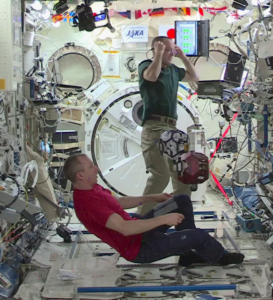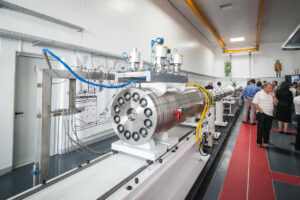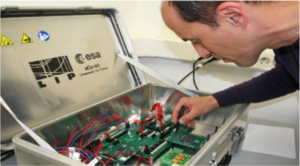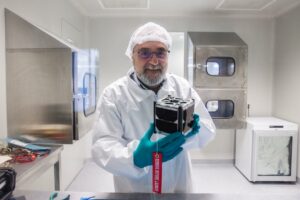UPDATE: The second call of Portugal Space PhD grants has been opened, this one focused on Technology Research and Development for Space Exploration. Check their press release here and the Notice of the call here. Deadline is March 31th, 2021.
Portugal Space has recently opened the first call of PhD grants focused on Science and Space Exploration and Sustainability and In-Situ Resource Use. According to its press release, further calls are expected to follow, focused on Technology and Systems for Space Exploration, Space Security, Big Data and Artificial Intelligence.
The Notice of the Call for the first call be found here, which applications are due January 29th, 2021. The applications should be submitted, following the instructions given at the Notice of the Call, at the ESA OSIP portal here.
This page includes a list of PhD topics offered by Instituto Superior Técnico faculty on the above areas, targeting possible applications to these calls. In case of interest, please contact the referred supervisors directly (see below).
- Rapid crewed missions to Mars1
- Integrated design methods for space applications1
- Nonlinear Integrated Navigation, Guidance, and Control for Small Space Vehicles in Low Orbit Satellites2
- Decentralized Cooperative Formations of Small Space Vehicles for Remote Earth Observation2
- Planning and control of autonomous cooperative free-flying robots for in-orbit 3D printing3
- Real-time trajectory reoptimization and autonomous onboard planning applied to small body mapping and fast fly-bys3 (in collaboration with Spin.Works)
- Risk reduction and science return optimization through autonomous path planning for sub-glacial dives on Ocean Worlds (Europa, Titan and Enceladus)3 (in collaboration with Spin.Works)
- The Mars radiation environment framework in support of Human exploration of Mars and astrobiology studies4
- Analysis of the interplanetary radiation environment with the ESA JUICE mission RADiation hard Electron Monitor, RADEM4
- Shock-Tube study of Uranus/Neptune Atmospheric Entry flows5
- Improved GNSS-aided navigation systems in unconventional conditions6
- In situ oxygen and propellant production on Mars by non-equilibrium plasmas7
(1) Prof. Paulo Gil, Assistant Professor at the Department of Mechanical Engineering
(2) Prof. Paulo Oliveira, Full Professor at the Department of Mechanical Engineering and the Department of Electrical and Computer Engineering
(3) Prof. Rodrigo Ventura, Assistant Professor at the Department of Electrical and Computer Engineering
(4) Prof. Patrícia Serrano Gonçalves, Associate Professor at the Department of Physics and at the Department of Nuclear Sciences and Engineering
(5) Prof. Mario Lino da Silva, Invited Professor at the Department of Physics
(6) Prof. Pedro Batista, Assistant Professor at the Department of Electrical and Computer Engineering
(7) Prof. Vasco Guerra, Associate Professor at the Department of Physics








